‘Lipstick,’ ‘Red Edge,’ ‘Maria,’ ‘Romeo’ — browsing nurseries and plant sales I’ve come across lots of named forms of this most agave-like of echeverias. This page from the World of Succulents has descriptions and photos of these varieties and many more. I’ve yet to hear anyone use the common names Molded Wax or Molded Wax Agave, but I have to admit the names are fitting.
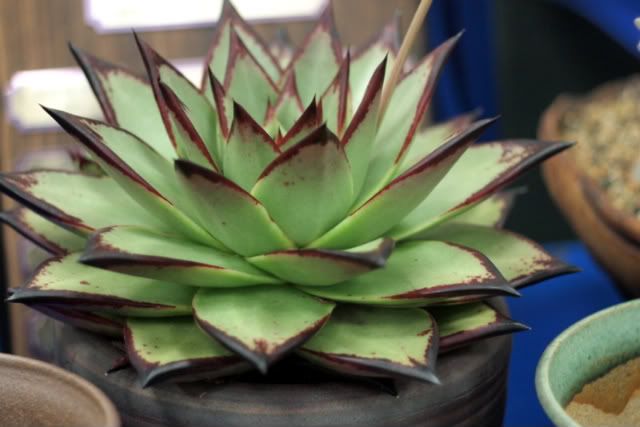
‘Ebony’
Some forms are quick multipliers, sometimes annoyingly so, while the most sought after (‘Ebony’) are stubborn singletons and therefore very pricy. In pots I have a ‘Red Edge’ and a cross with colorata named ‘Mexican Giant,’ which is nothing near as robust as its name suggests and has required serious coddling to keep alive.
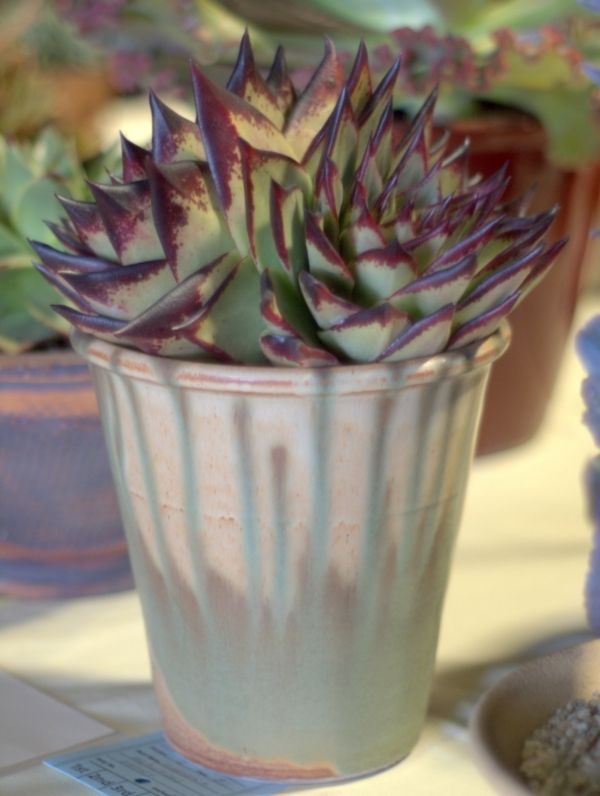
An ‘Ebony’ with pups, CSSA Inter-City show August 2015.
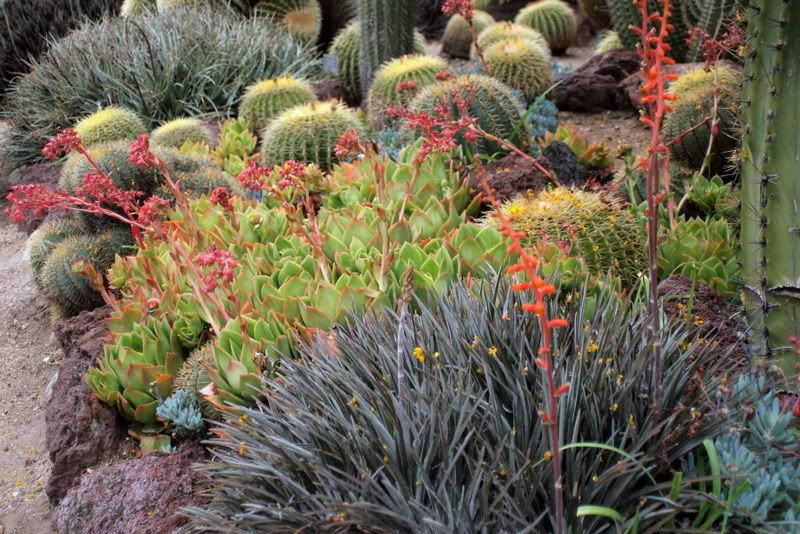
As good in landscapes as in containers, Echeveria agavoides var. prolifera shown here at the Huntington with dyckia and barrel cactus.
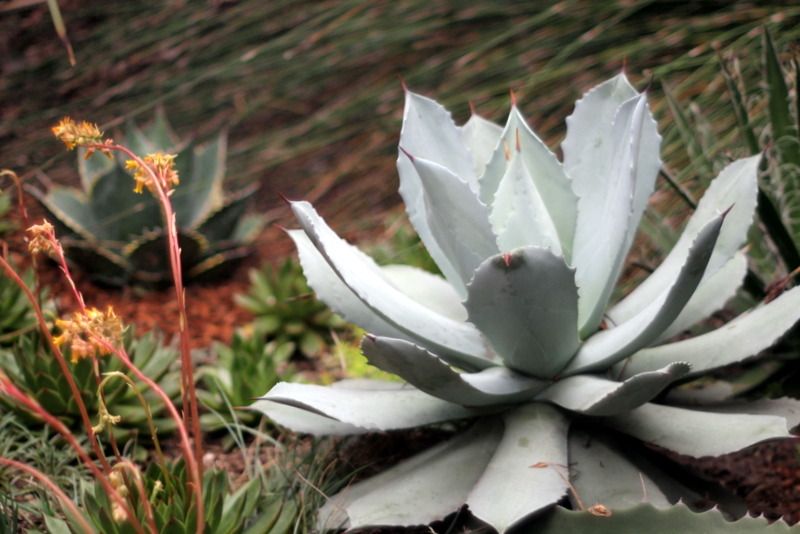
Blooming in my garden March 2016, I’ve had some reseeding too. (The butterfly agave on the right has since bloomed and survives only by a single pup.)
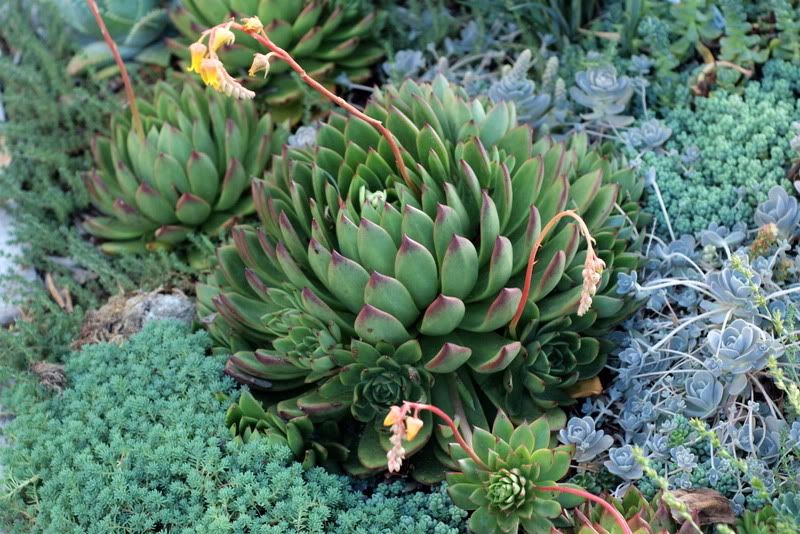
In my garden April 2011. Native to rocky outcroppings in several states of Mexico, it flourishes in my garden’s amended clay. Those in the ground are unnamed, fast-pupping, passalong plants.
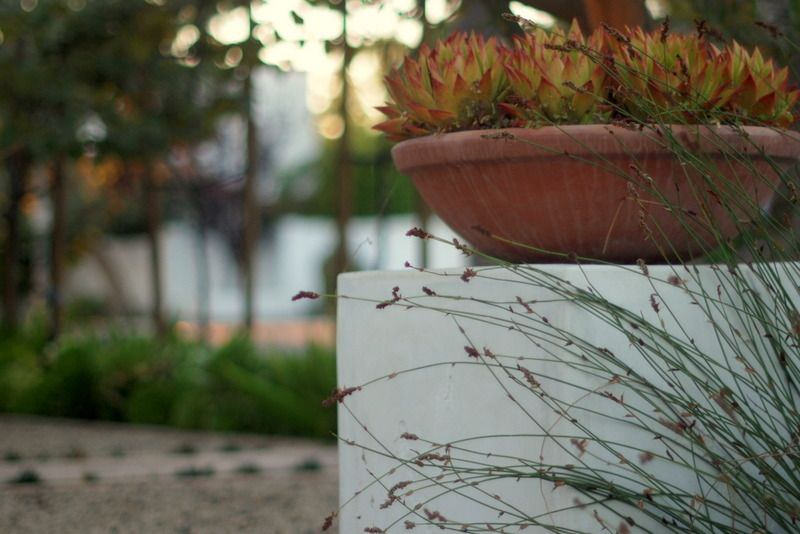
In a local garden, brushed by a restio, it anchors a column by brimming over in a shallow bowl.
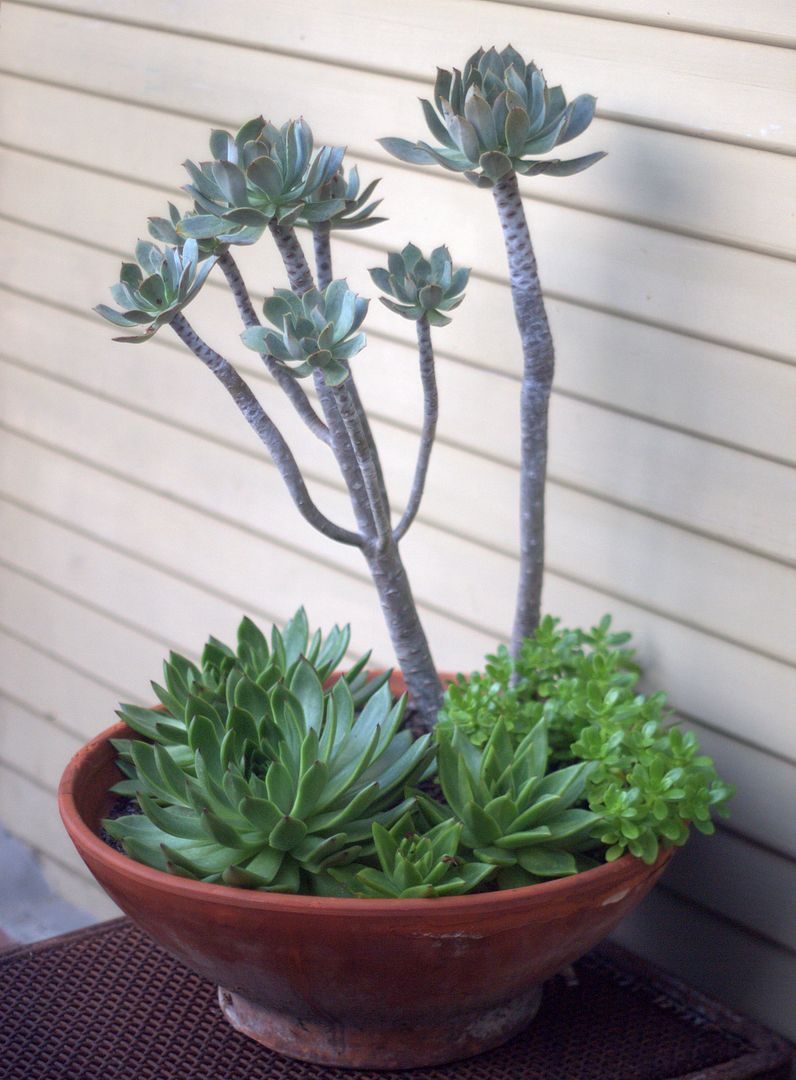
But also plays well with other succulents.
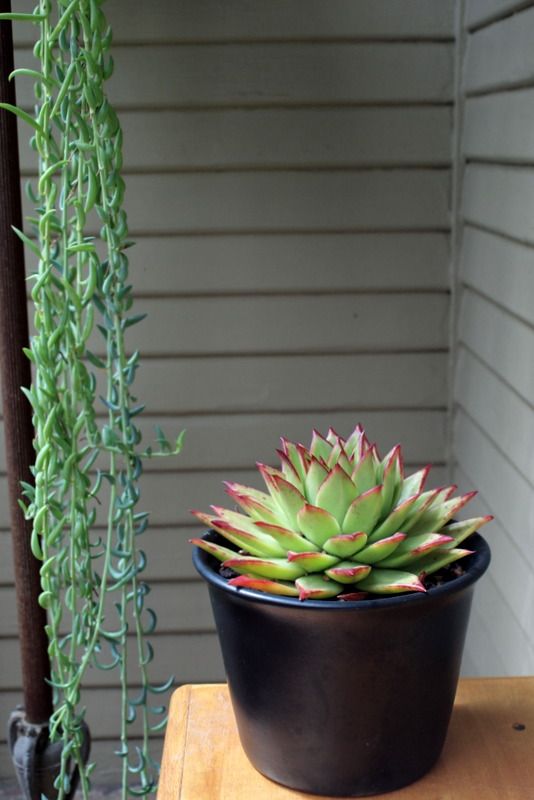
The perfect rosette can be a fleeting effect.
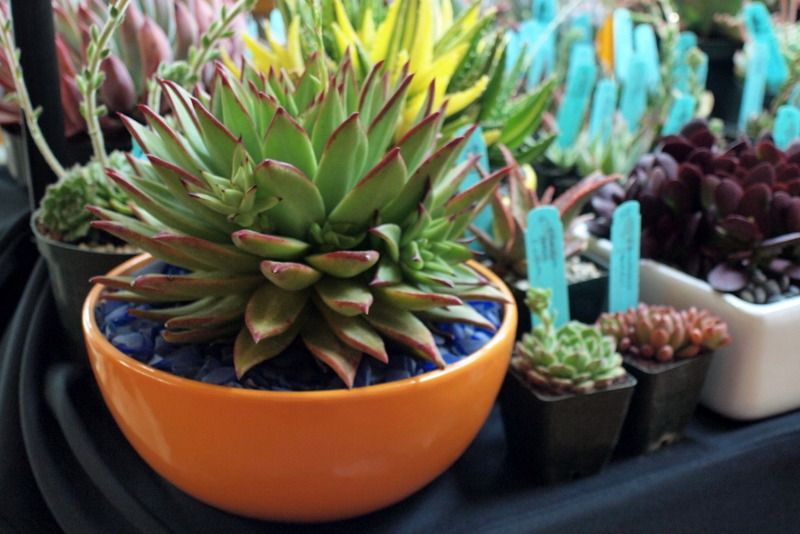
Crowded with pups is more the usual.
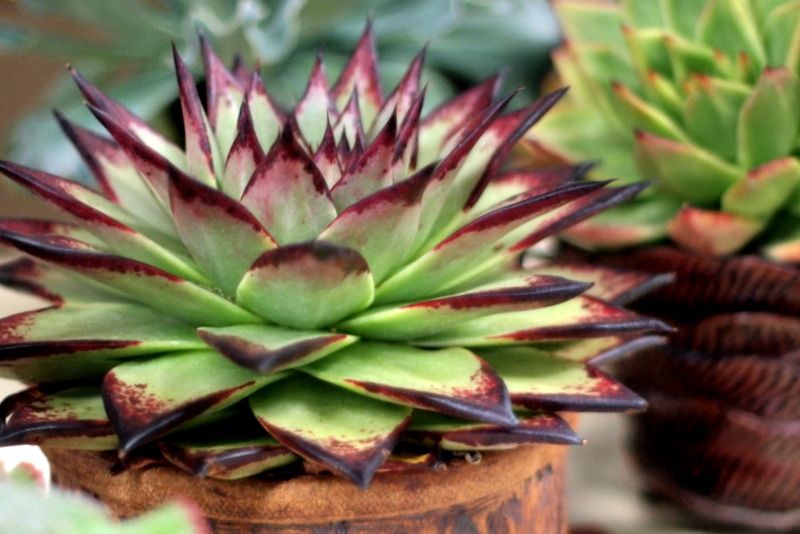
And the unattainable ‘Ebony’ again, coveted and often quickly bought out by foreign collectors. At this point, I’d be happy to find ‘Maria.’

I love that plant – many pups to prop and does well in the shade (needed in inland valleys) and provides nice yellow flowers
I’d no idea there were so many variations. I’ve got several but the only one that came labeled was ‘Lipstick’. Now I’ve learned that I “need” ‘Romeo’, ‘Romeo Rubin’, ‘Miranda’ and ‘Tippy’!
Awesome. makes me want to go find more for my yard. As someone who lives in a relatively dry climate I love Echeveria agavoides because it manages to look lush without needing much water.
That ‘Ebony’ from the Inter-City Show is an all-time great combination of container and plant. (Do potmakers ever get credited in show displays?)
A very reliable species in the ground or in a pot. If it can survive the way I abuse potted plants, it must be tough!
Just love to see the many varieties! Great post!
@Jane, yes, does well in so many exposures.
@Kris, last winter I was bumping into so many kinds at nurseries. I hope more show up this year!
@Hans, they make this relatively dry garden look lush too!
@Nell, that’s a good question. Not sure if credit is consistently given.
@Hoov, that agave is still a mystery. I bought it at a private sale in San Diego and was assured there was info available on it but haven’t found any. I was told to try the Facebook groups, but I’m off FB…
@thanks, Jayne!
One that I never lose to vine weevil, they are indestructible here, and beautiful.
@David, that’s been my experience too — good point.
Beautiful photos! In fourth picture from the bottom, there is a taller plant that looks like an aeonium and has (pale) blue leaves. Are the leaves really blue or are my eyes playing tricks on me? It’s wonderful. Do you know the name? Thanks for sharing your beautiful plant photos!
Rachel, I found an old blog entry tentatively identifying it as Aeonium hierrense — and yes, it is that blue! No longer in the garden, alas. The summer dormancy tendencies of aeoniums is probably why I lost this one, because some just look so bad the pot is moved out of the way and forgotten…
Thank you for the ID! Aeoniums in summer are difficult. I have lost quite a few. 🙁